The bus came to a halt and out stumbled twenty or so bewildered, bedraggled youths. Their appearance betrayed the strain of a. war-torn summer and the four-day, sleepless journey that had brought them from Cyprus to northern Greece. Their haggard faces conveyed in an instant the tragedy of war. The AFS students fell silent. This was a reality their parents had known well, but one from which they have been spared. For a few seconds the two groups viewed each other with an emotional intensity. Then the AFS students broke into their traditional song of welcome, the school’s church bell clanged in joyous greeting, and the newcomers were surrounded and absorbed into the Farm School family of three hundred students and staff. They all moved to the dormitory where food, blankets and clothing awaited the newcomers who had arrived with only the clothes they were wearing.
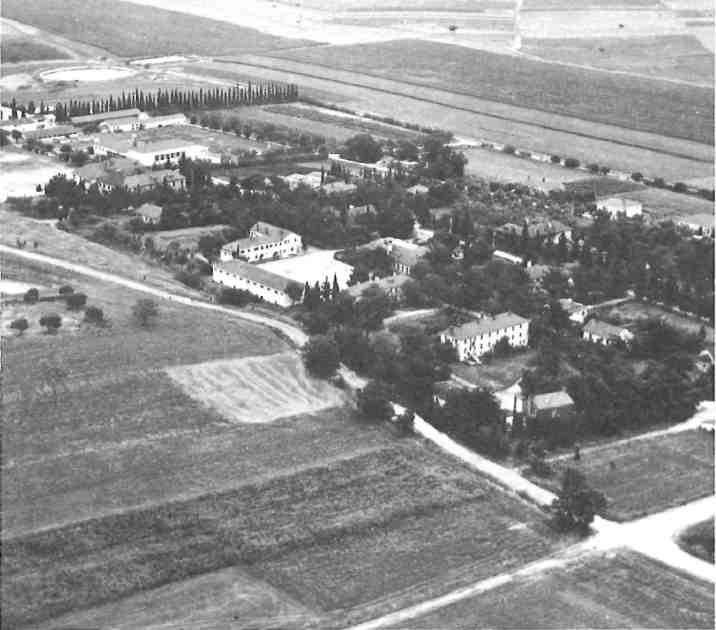
The agricultural school that the Cypriot boys had attended now lies in the Turkish occupied sector of the island. They will continue their agricultural and vocational studies at the AFS where they will spend three years.
Providing a home and education for uprooted people is nothing new to this institution, and the arrival of the Cypriot boys is only part of a pattern that began when the school was established over seventy years ago. The first students brought to the campus had been orphaned as a result of the massacre of Macedonian peasants following an insurrection against the Turkish authorities when Macedonia was still part of the Ottoman Empire. The American Farm School is one of the oldest educational landmarks on the war-scarred Macedonian landscape, but its program has kept apace of the needs of the rural population of Greece. Until recently students were admitted with only six years of schooling. The last students from that program will be graduating this spring. The school now accepts young men who have finished nine years of schooling, placing it in the category of a middle-level technical school. The recently modified program offers general academic subjects, agricultural and mechanical training in the first year, followed by specialization in either farm machinery, livestock or horticulture in the following two years. The students now receive a technical diploma which enables them to enter directly into a technical junior college or assume positions as agricultural technicians. Thus the new Farm School graduate will be a mature young man ready to take his place in the agricultural work force of the country.
This program links the school to a new educational system being developed in Greece. Through a World Bank grant, three middle level schools are being organized by the Greek government, all technical institutions, patterned after AFS. The AFS campus will be used as a centre at which teachers and technicians will be trained by the Ministry of Agriculture to staff the new government schools. The Greek government, with the World Bank grant, will help finance at AFS the construction of a piggery, greenhouse, new laboratory, new short-course centre and the renovation of Princeton Hall which was built with refugee labour after World War I.
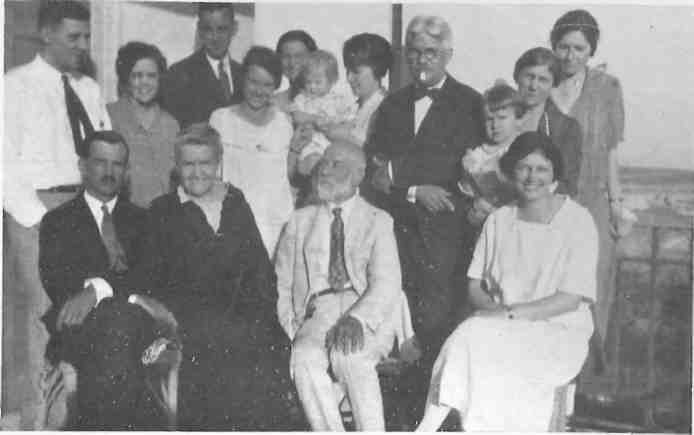
Although the students who came from Cyprus were all boys, the Farm School does have a girl’s school, a ten minute walk from the boys’ campus. Founded after World War II by the British Society of Friends (Quakers) on Farm School land, it is today an integral part of the AFS complex. In 1966, when the Quakers decided they could no longer support the Girls’ School, AFS assumed responsibility for its operation. The emphasis is on village crafts such as embroidery, rug making, and homemaking for the fifty girls enrolled in the two-year program. This year a talented designer-weaver has come from the United States to organize a craft centre so that the rural girls can broaden their skills in village crafts.
The creation of a girls’ division had always been part of founder John Henry House’s scheme, although he did not live to realize it. Dr. House (1842-1936), a missionary and Congregational minister, had a maxim: ‘When you educate a man you educate an individual,’ he said, ‘When you educate a woman, you educate a whole family.’ His enthusiasm and confidence that a girls’ school would one day come info being was spark enough to encourage Mrs. Eleftherios Venizelos to donate, in the 1930’s, the sum of $1,000 from her personal funds for the purpose. What the founder could not have known was that the first living quarters for the female students would be wooden barracks constructed by the German occupational force in 1943 for the purpose of housing the Farm School staff when the Germans requisitioned the entire campus for their own use.
The educational philosophy and spiritual outlook of John Henry House remain, after seven decades, fundamental to the principles of the school. Dr. House was sixty years old when he established the Thessaloniki Agricultural and Industrial Institute — the school’s official name — but he possessed the vigour and energy of a man in his prime. He had spent by then thirty years in the Balkans. He was a
practical man but also a visionary. He had a dream: that of founding an educational institution that would have as its goal Harvard President Charles Eliot’s precept: the development of the ‘whole man’, ‘the head, the heart and the hand’. He believed, too, that by training youngsters to be leaders in their rural communities, as well as modern farmers, he could contribute to the host country resource personnel with a developed sense of community and cooperation. He took as models three institutions in the United States: Hampton Institute in Virginia, the Tuskeegee Institute in Alabama and the Penn School for Girls in South Carolina, all of which were at the time pilot projects designed to provide rural populations with a practical education.
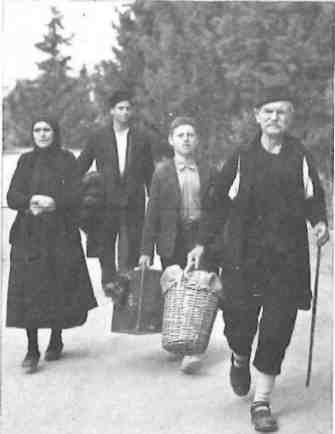
Early in his mission, which was concerned with educational institutions as well as preaching throughout the Balkans, House noticed a striking sociological trend that had become endemic: village boys had learned to despise village life. He became convinced that the mode of education had to be changed in order to inculcate the students with the ethic that it was not degrading for educated people to work with their hands. Such education, he felt, would reverse, in some measure, the trend of village boys to move to the cities.
In this connection, Bruce M. Lansdale, who succeeded Charles Lucius House (the son of the founder and the school’s second director) speaks proudly of the Farm School’s record over the past seventy years. ‘Seventy percent of our graduates have remained in agriculture, according to a 1965 independent survey. By returning to villages all over Greece our graduates have joined a network of like-minded, progressive farmers and village leaders who have played an important role in the dramatic development of agriculture,’ Lansdale explains. One concrete example of Farm School expertise was demonstrated in 1945 when the program of electrification in Greece began. ‘Our graduates were among the first in rural areas able to harness the electricity to agricultural uses immediately,’ Lansdale notes. ‘Many Greeks point out that AFS is unique: it is the only one of its kind in Greece for village boys and girls offering theoretical and practical instruction specially tailored to the needs of rural society within a boarding school context.’
The concept of educating the farmer in a formal academic environment was radical when John Henry House at the turn of the century began to implement his plan. By the 1920’s and 1930’s agricultural and vocational concepts were beginning to take hold, at least in the United States.Today John Henry House’s notions seem hardly revolutionary. His attempts to restructure the missionary school system by introducing agricultural and vocational programs were those of an innovator and pioneer. He encountered serious resistance from the American Board of Commissioners for Foreign Missions who considered his ideas outside the scope of the missionary endeavour for which they had sent him to the Balkans. While the board was willing to educate the social classes in classical colleges, as witnessed by the number of schools founded by Protestant missionaries throughout the Ottoman Empire, the concept of educating the peasant seemed pointless. Therefore House founded the Thessaloniki Agricultural and Industrial Institute with funds that he himself had raised and it was, from the beginning, independent and outside of the missionary school system.
In 1902 Dr. House and two missionary colleagues purchased fifty-three acres of parched land in a bandit-infested, waterless, unprotected stretch just outside of the city of Thessaloniki. He was convinced that, in order to teach by example, the land he and his pupils would cultivate had to be as poor as that of the poorest farmer. To make it bloom would be advertisement enough.
Proudly he took his wife to see the property he had purchased. Buffeted about by the powerful Vardaris (a wind that channels through the Axios river bed from Yugoslavia into ” northern Greece), her feet mired in the cloying fall mud, Mrs. House turned to her husband and asked:
‘Whoever will you get to live in this place?’
‘You, my dear,’ was his instant retort.
Make it bloom he did, through the system of dry farming, sinking of wells, with the help of students who were ‘learning by doing’, sheer grit and, as he would say, ‘the will of God’. The setbacks and hardships would have felled a lesser man. The principal building that had taken ten arduous years to construct burned down in 1917. There were years when the wells dried up; years of drought and years of flood; influenza and malaria that racked the students and his family. There were the violent historical climate of the period and the constant lack of funds. In spite of these difficulties, the school remained remarkably on course.
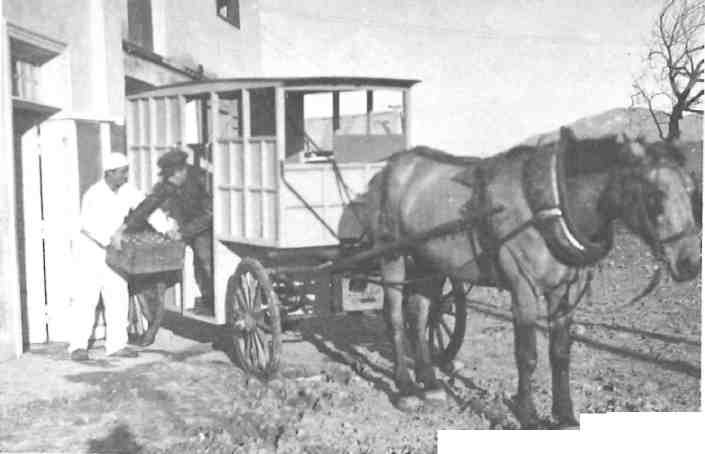
The concern shown for the welfare of the Cypriot boys who arrived at AFS last autumn is consistent with the humanitarianism that has distinguished the school’s history. The administration has always stressed the development of character, character with a strong humanitarian impulse. Recently one student wrote:
I loved the school and I always thought of it as my second home. I learned so much in those two years. I don’t credit all those things solely to the building called ‘school’ but to our teachers, as each in her own way tried to teach us something better.
To mold their perceptions and to give the youngsters a feeling of love and security, the House family from the moment they moved onto the campus in 1906 operated the school with family like intimacy. Susan Adelaine House, the wife of the founder and a brilliant personality in her own right, set the filial tradition. Her world outlook, her life-style, her attitude toward the boys, and the House family’s approach to one another, influenced the students. Her role as mother to her own children, and as mother-in-residence to the students, did much to set the tenor of the institution. Given the conditions of the times — northern Greece was still under Turkish rule — and the hostile influences that then shaped Macedonian village life, few of the boys who came to the school had ever encountered such relationships. Kindness, gentleness and cooperation were constant and overriding values; even the animals were treated with consideration and afforded a certain dignity.
Mother House was born Susan Adelaine Beers on September 14, 1850 to a prominent New York family. It was in the home of her great-grandfather that a group of ministers planned the founding of Yale College. Her uncle, John Bigelow, was Ambassador to France. Born on East Fourteenth Street, then a fashionable area of the city, she was exposed to the sophistication of New York society. Pre-Civil War “New York provided little preparation for the primitive and dangerous conditions awaiting her in the Balkans, but she was a woman of tremendous creativity and energy, and was never at a loss for ideas.
Many of the projects carried out during the early years at the school were a result of her initiative and were executed according to her plans by Father House. She had a strong sense of propriety but knew intuitively when it was right to speak. And speak out she did! In an age when women were reticent to express opinions on profound matters, her comprehensive mind was all the more remarkable. She wrote and spoke particularly on morals and politics. The inventory of her personal library, on file in the Farm School archives, gives testimony to the breadth of her interests. Early photographs of Mrs. House, when she was still a young wife, give the impression of a woman of striking confidence and poise. Her face is strong but not hard, and her dark eyes glow with a keen intelligence. The set of her chin proclaims a personality both unfearing and extremely positive. The photographs, taken a few years before her death at the age of ninety-six, show her aged, a frail wisp of a woman, but still reflecting her characteristic pur-posefulness.
Former students have stressed that they learned their most enduring lessons from the example set by Dr. and Mrs, House. They both contributed equally to the school. The institution as it was, and is today, reflects the spirit personified by the composite of those two personalities.
Bruce Lansdale, the current president, and his wife, Tad, show a natural inclination to perpetuate the tradition. In today’s complex world, however, Lansdale admits that it is much more difficult to sustain. ‘First of all the school is so much larger. In the first decade you had ten, sometimes fourteen boys in each class. Outside intrusions were rare. There was no transportation from the depot to the school so that if anyone dropped in it was an occasion. Now we have thousands of visitors a year. Fund raising in those days was done by the Board of Trustees or through contacts. Now I have to help with the fund raising.’
The farm provides from its produce and services about forty percent of the annual income. Greek government funds pay for the short courses which fifteen hundred rural leaders and farmers attend throughout the year in conjunction with a Greek Ministry of Agriculture plan. Fees charged to all students cover about one-fifth of the instructional costs. AID (U.S.A.) funds have supplied most of the post-war building and equipment and still provide approximately fourteen percent of the annual budget. Only about thirty-seven percent is accounted for by private donations from Greece and the United States.
‘It’s the thirty-seven percent that keeps Tad and myself on the go,’ says Lansdale. ‘Even Charlie and Ann’s energies were not so absorbed by fund raising.’
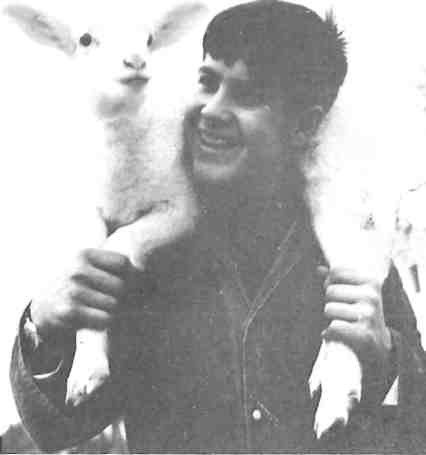
Charlie — Charles Lucius House — died in 1961 at the age of seventy-three. Charles House officially succeeded his father in 1929, but in actuality he had begun to shoulder the full burden of responsibility for his aging father soon after his return to Greece in 1917. Having grown up in Thessaloniki he knew the language and people. An engineer by training (Princeton, 1909) he immediately set about building the school into a modern institution using his father’s precepts as a foundation. He knew how to actualize all of the processes necessary for genuine village life. It was his willingness to adapt to changing conditions of Greek rural life over a period of thirty-seven years that gave dynamism to his program. Most of all he loved and understood the Greek farmer.
His school was not to be an American outpost in Greece, but an institution Hellenic in essence, reflecting Greek values, absorbing them, and synthesizing them with American educational concepts. He attracted elements of Greek society which hitherto had remained outside of the Farm School orbit, among them prominent leaders in civic community life. He also trained a staff of first-rate Greek personalities for key positions which deepened the Hellenic complexion of the school.
Bruce Lansdale, who grew up speaking Greek and has an M.A. in rural sociology, agrees totally with his predecessor on this aspect of the Farm School spirit. ‘Today our staff is over ninety percent Greek. Many of them are former graduates who have done post graduate or specialized training in the United States.’
Among the more prominent liberal leaders in Greek civic affairs who took an interest in AFS were two brothers, Alexandros and Constantinos Zannas. These men of good will, conscious of their community responsibilities, sought ways to improve the quality of Greek life. With their sense of social mission, it was not surprising that they would seek out and become close friends with Charles House. Alexandros Zannas, an intimate of Prime Minister Venizelos who served in Venizelos’s government as the first Air Minister, did much to enlist the Prime Minister’s support for the Farm School. A younger brother, Constantinos Zannas, a lawyer, became the first Greek member of the schools’ board of trustees and remained a life-long friend and supporter of the institution. His son, Dimitrios, also a lawyer, stepped into his father’s shoes after the latter’s death and assumed the responsibilities as a trustee and lawyer for the school.
Among other prominent Greeks who turned their attention to the school was Professor George Sotiriades, first Rector of the University of Thessaloniki. He understood the services the school was providing for the youth of Greece and did much to focus public attention on it -by writing articles and maintaining close personal relationships with the House family.
Ann and Charles House’s efforts in the twenties to groom and develop a staff were brought to culmination in the thirties with the formation of a hard core of devoted members. Central figures in the school’s development were the Greek members of the staff. Many of them were Farm School graduates whose childhoods had been scarred by upheaval and parental loss. The school had become their home and their devotion was filial. Others who had gravitated to the institution as adults were idealists and humanitarians who discovered in the school’s goals a worthwhile cause to which they could devote their lives. They merged with the House family to establish a tradition of behaviour and philosophical outlook which even today continues to be transmitted to the new members who join the staff, and to the students. Among them were Eleftherios Theoharides, an Asia Minor refugee whose son, Harry, is today Head of the Industrial Arts Department and the school’s Resident Engineer.
Theodore Litsas, another Asia Minor refugee, played a prominent role in the school’s formation under Charles House and remained as associate director, under Bruce Lansdale, until his death in an auto accident a few years ago. His dramatic position as caretaker during the German occupation of the school makes him a central figure in its history. His son, Dimitrios, recently joined the staff.
Another cornerstone of the staff was Dimitrios Hadjis who later became one of the best if not the best cattleman in all Greece. He had been brought to the school by an aunt in 1918, when he was displaced by the upheaval of World War I. After graduation he worked as dairy supervisor at AFS until, as a result of Ann and Charles’s efforts, he received a scholarship to Cornell University’s College of Agriculture from which he graduated in 1932. He remained at the school until his retirement in 1970.
Ann Kellogg House, Charles’s wife, today lives in Hightstown, N.J. They were married in 1923. The door of their apartment on the campus was always open to the boys and staff members. Ann House possessed a natural ability to win confidence and there was hardly a boy or family on the campus whose troubles and happiness she did not follow very closely. With the expanding population after 1921, the school became a larger institution with both permanent and transient residents. With her sincere interest in people and her appreciation for family structure, she welded what could have been diversified groups into a solid, unified, !•arm School family. As a result there was unity of purpose, a common scale of values and a sense of community responsibility. Certainly the key to understanding the school’s unique character would lie in its sense of community.
Ann House’s devotion to AFS surpassed the bounds of what most people understand as duty when in 1941 she refused to leave Greece as first the Italians and then the Germans invaded the country. In 1942 Ann and Charles House were arrested by the Germans and sent to separate internment camps in Germany. They were repatriated in 1944. By 1945 they had returned to AFS to serve the rural youth who found themselves trapped in yet another war, this time a civil war. The Houses retired in 1955 leaving the direction of the school in the dynamic hands of Bruce Lansdale.
Lansdale, still in his prime, is the third director since the school’s founding seven decades ago. When viewed against the historical backdrop of Macedonia during the last seventy years, the internal continuity and stability of AFS stand out as principal elements in its survival.
The school’s location has placed it in the eye of an historical maelstrom, for it has witnessed some of the more dramatic events of our time. At the time of its founding, Macedonia was the object of violent clashes among antagonistic Balkan nationals, a conflict known as the Macedonian Struggle (1897-1913); the seat of the Young Turk Revolt (1908); the battlefield for two Balkan wars (1912-1913); the pivot point for the Macedonian front in World War I; the focal point from 1921 for the resettling of over 1,000,000 refugees struggling in from Asia Minor. Occupied by the Axis in World War II, this heartland of the Balkans further suffered from the tragic Greek Civil War which did not end until 1949. The American Farm School was shaped in one way or another by all of these events. During the occupation, the Germans, as they retreated from northern Greece, blew up one of the main buildings which they had been using as a communication centre. During the Civil War, the entire senior class was kidnaped by communist guerrillas. Exhausted but determined, each one of the students escaped his captors. By graduation day, after an ordeal in the frozen mountains that would be material for a modern odyssey, they had all made their way back to the school.
Considering the magnitude and proximity (in time) of these historical events, the survival of the institution is itself an epic; the fact that the original spirit has not been warped, or the dynamism of its life sapped, is all the more remarkable.
Evidence of the forward movement of the program is the recently introduced ‘Greek Summer’ program. Innovatively moving in a new direction, ‘Greek Summer’ brings fifty American students and other nationalities to Greece to participate in a Peace-Corps-like project. The high school students undertake some needed construction in a Macedonian village where they live for four weeks; they travel throughout Greece for another two. The relationship that evolves between the villagers and the youngsters is the real significance of ‘Greek Summer’. 1 like to call that relationship mutuality,’says Director Lansdale. ‘Greek Springtime’, an even newer program designed for American high school students who take part in it for credit during their senior year, focuses on rural studies.
The education program at AFS stresses practical work. A stroll on the campus reveals youngsters welding, working with masonry, laying pipes, constructing a variety of toilets, from the most primitive to the most sophisticated. The emphasis is on methods that can be adapted to village needs and possibilities. In the fields, boys are pruning trees in the orchards, working irrigation systems, driving tractors (the best treat of all) and placing plastic covers over tender plants. In the cow barns and dairy, which produced in the late 1920’s the first pasteurized milk in Greece, the boys are learning to process milk, to breed and raise cattle, from expert herdsmen. At Easter vacation each boy is allowed to take home something he has planted, made or raised. To take home a six month old Chios lamb, one that he watched being born and cared for, is a great source of pride and joy. No doubt it will be the tallest, fattest, and whitest lamb in the whole village.
A visit to the American Farm School is an unforgettable adventure. AFS stands as a living tribute to the triumph of the House family, to the staff that shared their inspiration and passed it on to the real heroes — the young boys and girls who return to their villages better human beings for the, experience, and better farmers, trained to wrest from the difficult Greek earth a greater yield.
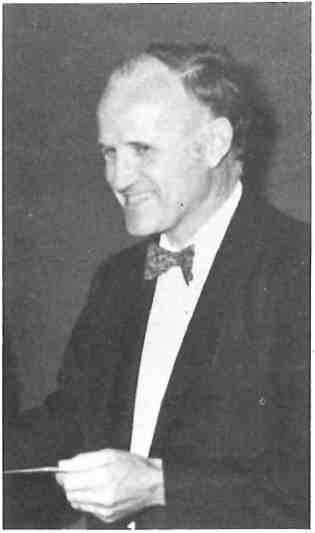
Bruce M. Lansdale, the President of AFS, speaks Greek with a definite Macedonian accent. He was born in the United States and came to Greece in 1925 as an infant when his father became General Secretary of the YMCA for Greece. (Herbert P. Lansdale, a Philhellene, has chosen Athens as his retirement home.) Bruce returned to the United States to earn a degree in engineering at the University of Rochester. In 1946 he visited Greece to serve on the Allied Team for the Observation of the Greek Elections. A year later he worked his way back by tending forty mules on a cattle ship and spent a year as a volunteer at the American Farm School which he had known intimately since childhood. Sensing a need for a background in agricultural education, he attended Cornell University where he earned a Master’s Degree. He married Elizabeth (Tad) Krihak whom he had known at the University of Rochester. Ί married Bruce, Greece, and the Farm School’ is Tad’s favourite comment. They returned to the Farm School where Bruce as a Fulbrighter learned the total operation under the then director Charles L. House whom Bruce had always known as ‘Uncle Charlie’. In 1955, upon the retirement of Charles and Ann House, Bruce assumed the position of Director.







